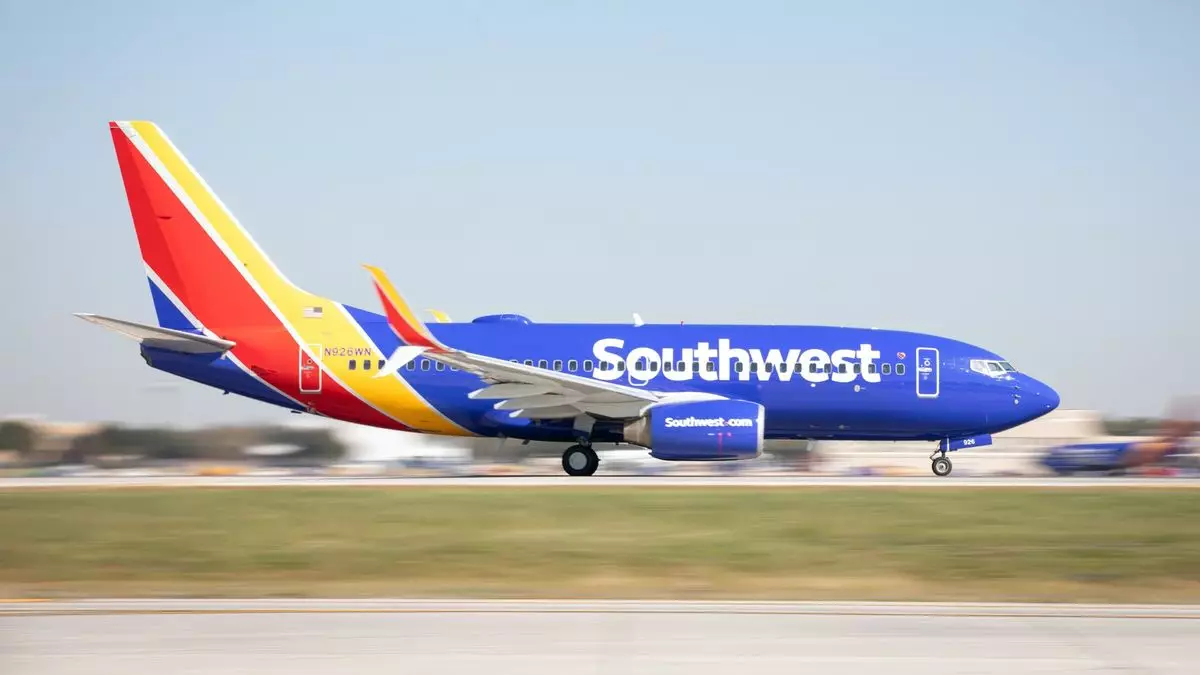In recent months, the airline industry has witnessed an intensified scrutiny from government bodies, particularly in the realm of customer service and operational reliability. The Transportation and Justice departments have taken significant steps by filing lawsuits against Southwest Airlines, targeting issues surrounding chronically delayed flights that took place during the challenging travel seasons of spring and summer 2022. This robust legal action marks a pivotal shift in how airlines are held accountable for their operational practices, particularly as the Department of Transportation (DOT) tightens regulations on performance reliability.
At the core of these lawsuits lies the DOT’s definition of „chronically delayed flights.“ According to DOT guidelines, flights that arrive over 30 minutes late more than half of the time for an extended duration (over four consecutive months) fall under this category. Such occurrences not only showcase the airline’s operational failures but also raise concerns about consumer rights, as regular travelers may base their plans on scheduled arrival times that the airlines fail to meet. The lawsuit against Southwest Airlines seeks to impose the maximum allowable fine, indicative of the seriousness with which the government is approaching the issue.
The flights in question, connecting Chicago to Oakland and Baltimore to Cleveland, have been characterized as having consistently poor performance records, leading to considerable disruptions for thousands of passengers. The significance of this lawsuit isn’t just about the fines—it’s about setting a precedent that might compel airlines to prioritize reliability or face monetary and reputational consequences.
In an email response to the lawsuit, Southwest Airlines expressed its disappointment, emphasizing its longstanding commitment to operational excellence. The airline argued that its historical performance—over 20 million flights without prior violations of the DOT’s chronically delayed flight policy—contradicts the implications made by the lawsuit. This perspective reflects a common defense employed by many corporations facing litigation: an appeal to a comprehensive history of compliance and operational success to mitigate the weight of the allegations.
Interestingly, Southwest’s assertion that the characterization of its flights as „chronically delayed“ is „not credible“ offers a glimpse into the broader challenges within the airline industry—slippery metrics and debated interpretations of performance standards. Moreover, as the industry adapts to evolving government policies under the leadership of individuals like Secretary of Transportation Pete Buttigieg, the response mechanisms of airlines will be tested on multiple fronts.
In contrast to Southwest’s aggressive legal stance, Frontier Airlines opted for a more conciliatory strategy by entering a consent decree to address its own baggage of chronically delayed flights. With a fine structured to reduce their financial liability contingent upon future performance, Frontier’s approach illustrates a practical acknowledgment of the regulatory climate and a willingness to quickly resolve matters to avoid extensive litigation.
This difference in strategy highlights the divergent responses possible within the airline industry to similar allegations. While Southwest defends its reputation, Frontier is pragmatically navigating its financial and operational landscape to align with regulatory expectations, realizing the critical nature of governmental oversight.
The unfolding lawsuits against Southwest Airlines and the agreement reached with Frontier Airlines signify a crucial moment for airline accountability in a post-pandemic world. As travel resumes to pre-COVID levels, maintaining customer trust, operational performance, and compliance with government regulations become increasingly paramount for airlines.
Whether the outcome of the Southwest case leads to a financial penalty or a policy adjustment will not only affect the airline in question but also set the tone for how other carriers approach their scheduling, customer service, and compliance with government oversight. Robust consumer protections may be on the horizon, compelling airlines to implement stronger operational practices or face significant repercussions.
The recent legal actions represent a complex intersection of consumer protection, regulatory enforcement, and corporate accountability, thus reshaping the landscape of the airline industry as it navigates the road to recovery and reliability.


Napsat komentář